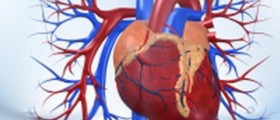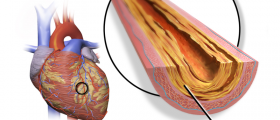
LCAT is short for lecithin-cholesterol acyltransferase, an enzyme of great importance for the body, binding both high-density lipoproteins (HDLs) and low-density lipoproteins (LDLs) in the plasma. So LCAT deficiency is actually a metabolic disorder affecting lipoprotein metabolism. There are two familiar forms of this enzyme deficiency known as familiar LCAT deficiency, which is characterized by complete absence of LCAT, and fish eye disease, a partial LCAT deficiency.
The first form of the disease was initially reported in one Norwegian family in the last century (1967). In the affected people there were no LCAT activity towards both, HDL and LDL. In the second form of the disease, however, the absence of LCAT activity is limited only to HDL. Even though there is slight difference between these two forms of the disease, both of them are inherited in an autosomal recessive pattern and develop as a consequence of certain mutations of the LCAT gene.LCAT Deficiency Pathophysiology
Since people suffering from this type of deficiency lack a specific enzyme, they are not able to deal with excess of cholesterol in their bodies. Therefore, there is clear accumulation of unesterified cholesterol in multiple organs. The most commonly affected organs are the cornea, kidneys and erythrocytes ( red blood cells).
Only in case of fish eye disease, patients may end up with a lesser degree of cholesterol build-up and only develop corneal opacification. Symptoms and signs of the condition as well as health problems such patients have to deal with are closely associated with the previously mentioned cholesterol build-up and basically depend on the affected organ.
Treatment for LCAT Deficiency
Patients suffering from LCAT deficiency need to be treated for their anemia, renal insufficiency and rapidly developing atherosclerosis. Theoretically such patients would benefit a lot from gene therapy or liver transplantation. Short-term whole blood or even plasma transfusion have been tested in order to replace the LCAT enzyme.
Such treatments have not been successful regarding anemia, proteinuria and persistent lipoprotein abnormalities. Patients who have developed terminal kidney failure must undergo kidney transplantation. Surgery is also performed in individuals in whom corneal opacities have led to severe loss of vision.
It is essential to have regular check-ups and consult a well-experienced endocrinologist who will prescribe an optimal diet and treat abnormalities regarding hypertriglyceridemia or low HDL. An eye doctor will perform regular tests in order to check visual acuity and estimate progression of the disease.
Similarly, a nephrologist will check the function of the kidneys and recommend kidney replacement if necessary. So, a long term consultations with many medical professionals, regular check-ups and practically a variety of treatments are important for these patients to control their illness and prevent or treat associated complications.

















Your thoughts on this
Loading...